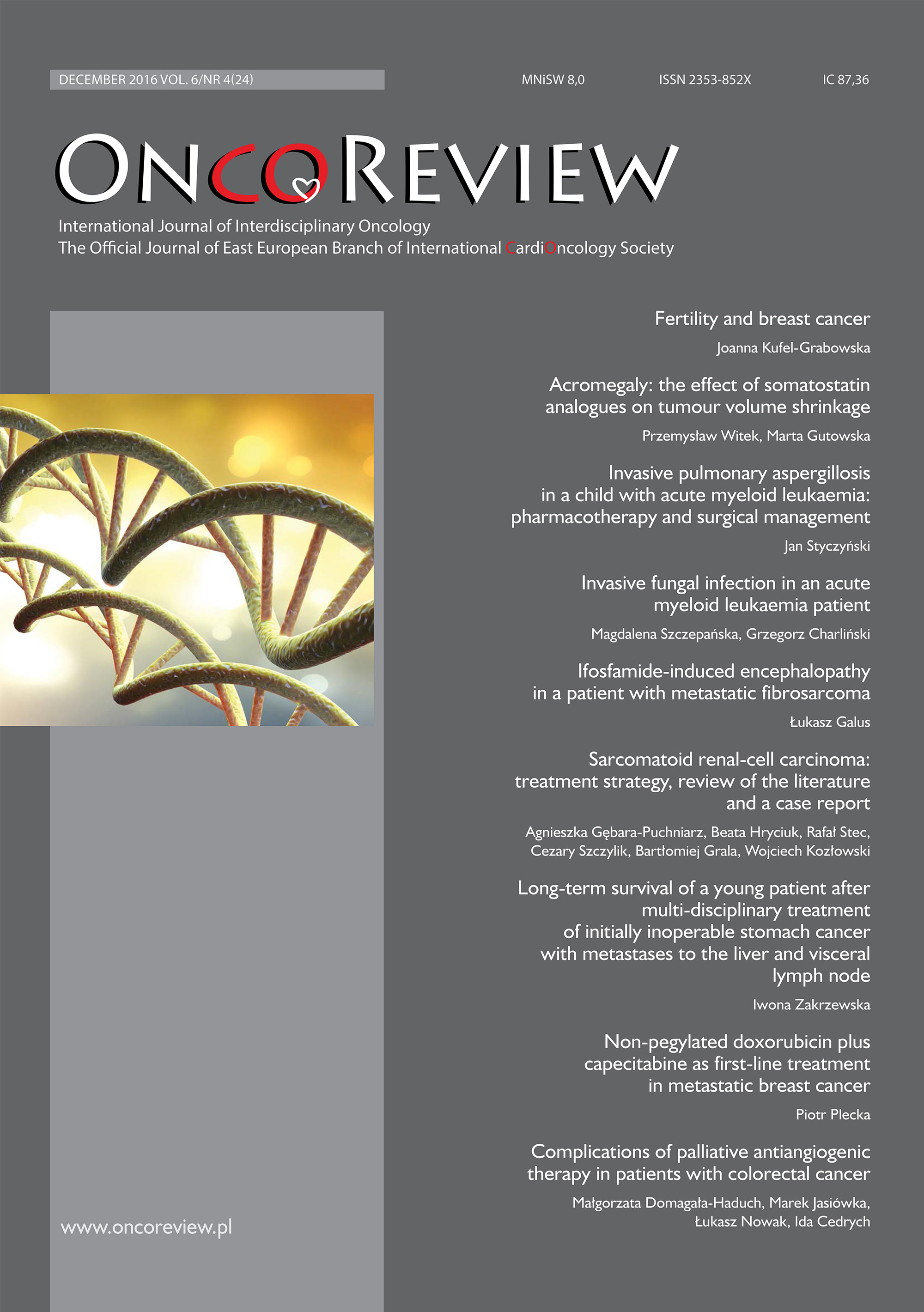Invasive fungal infection in an acute myeloid leukaemia patient Case report
Main Article Content
Abstract
Invasive fungal infections (IFI) are one of the most severe complications of treatment in patients with acute myeloid leukaemia (AML) that are diagnosed during the myelosuppression period following intensive chemotherapy. Due to a high mortality rate reaching up to 30–70%, IFI require an adequate prevention, and once an active infection is diagnosed – a rapid diagnosis and an effective antifungal therapy. Modern therapy models are based on expensive treatment regimens and are often associated with long-term hospitalization and the need for intensive supportive treatment.
Downloads
Metrics
Article Details

This work is licensed under a Creative Commons Attribution-NonCommercial 4.0 International License.
Copyright: © Medical Education sp. z o.o. This is an Open Access article distributed under the terms of the Attribution-NonCommercial 4.0 International (CC BY-NC 4.0). License (https://creativecommons.org/licenses/by-nc/4.0/), allowing third parties to copy and redistribute the material in any medium or format and to remix, transform, and build upon the material, provided the original work is properly cited and states its license.
Address reprint requests to: Medical Education, Marcin Kuźma (marcin.kuzma@mededu.pl)
References
2. Bhatt VR, Viola GM, Ferrajoli A. Invasive Fungal Infections in Acute Leukemia. Ther Adv Hematol 2011; 2(4): 231-247.
3. Leroux S, Ullmann AJ. Management and diagnostic guidelines for fungal diseases in infectious diseases and clinical microbiology: critical appraisal. Clin Microbiol Infect 2013; 19(12): 1115-1121.
4. Czyż A. Powikłania infekcyjne w hematologii. Hematologia 2016; 1(10): 108-118.
5. Maertens J, Marchetti O, Herbrecht R et al; Third European Conference on Infections in Leukemia: European guidelines for antifungal management in leukaemia and hematopoietic stem cell transplant recipients: summary of the ECIL 3-2009 update. Bone Marrow Transplant 2012; 47: 846-854

